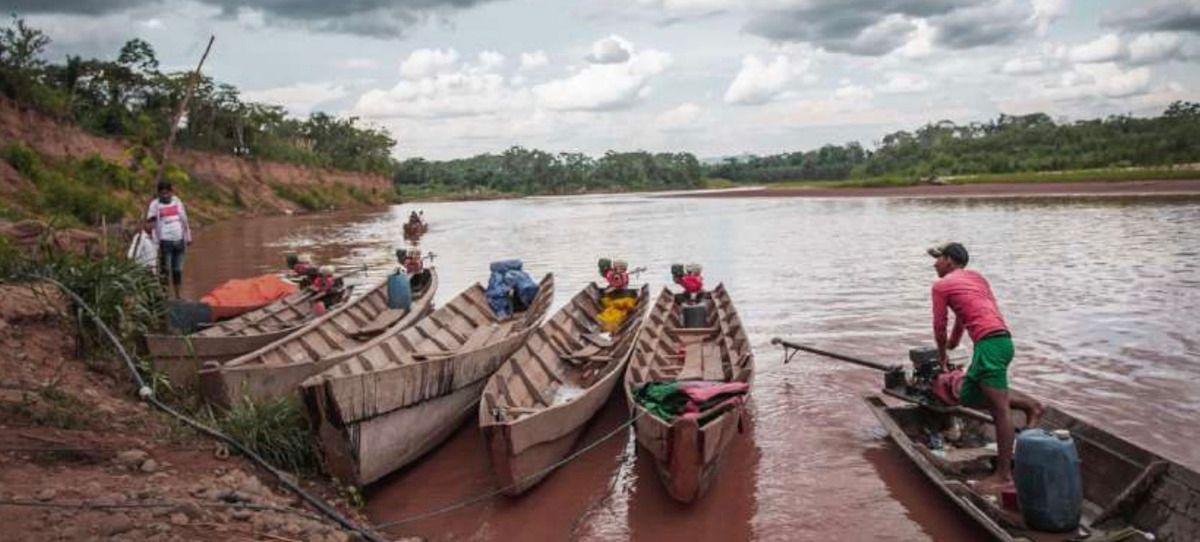Ruth Velásquez had been collecting and recycling for almost a decade in the garbage dumps of Cochabamba, Bolivia, when she began to meet with other colleagues to reflect on her work. They, like thousands of public cleaning and waste recycling workers, spend the whole year, all the time, working without pay, without hours, without social security, in a city with more than 2 million inhabitants and tons of garbage.
Moved by disagreement, on December 12, 2012, at noon, 12 workers were formed at the Ecorecolectoras in Cochabamba. A group that is currently an organization made up of 185 families dedicated to recycling in different areas of the city.
The majority are adult and elderly women up to 30 years of age working to collect and separate waste. As a result of the Covid pandemic, men in search of self-employment began to join, many of them parents.
“We want to continue to include those waste pickers who do not belong to the organization to have more strength and demand (our rights) with a unanimous voice because this is a sector that is very abandoned by the authorities, by society, practically by everyone,” says Ruth Velásquez, founder and representative of the Ecorecolectoras.
In these 12 years, advances have been made, such as certification in the occupation of the collection of usable material by the Bolivian Ministry of Education, in coordination with the Ministry of Environment and Water. As well as compliance with Law 755 on Integral Waste Management to recognize them as basic recyclers.
Although they have welcomed the advances, there is still vulnerability in their work because of the health risks and discrimination they face. The latter has changed in recent years. “We now have more support when it comes to raising awareness and separating garbage,” Velásquez says.

In addition to collection and recycling, Ecorecolectors participate in workshops, forums and programs on environmental education. Photo: Ecocollectors.
The day to day
On a daily basis, Eco-collectors follow a rotating system that varies depending on the area of the city in which they are located and the work to be done.
The first thing is the green dots, large containers that the city council places in different parts of Cochabamba for garbage collection. Currently, the workers have seven green spots on the map, including underground dumps, whose structure sends the garbage to an underground warehouse.
In addition, routes are laid out for door-to-door collection and visits to the baskets, which is the name of garbage containers for residents of condominiums or institutions. As well as Eco Flash, which consists of a home service that they encouraged the population to request collection and recycling by phone.
“This way we are distributed and it is rotating so that we can all have our source of work... We are also in the green spots explaining to the population how they have to separate the garbage, what are the materials that do work and which are the materials that don't,” explained Adriana Ríos, a member of the Ecorecolectoras.
Although the rotating system has made their routine more efficient, the workers point out that it is a 24-hour job, without holidays, and with a payment that depends on what is obtained through recycling.
“Many think that as collectors the municipality cancels them (gives a payment), but that's not the case. Their only source of income is recycled material. That's why we want more people to join, to support Ecorecolectoras and to support us as an association,” added Gabriela Rodríguez, coordinator of Ecorecolectoras.
With regard to social security, the recognition they obtained as basic recyclers gives them access to Universal Health Insurance (SUS), which only covers a percentage of medical services, making it difficult to access medicines and specialty medicine.
For their part, Ecocollectors are constantly trained in the subject of waste management. This has allowed them to draw up internal regulations to reduce risks at work, such as the use of biosafety clothing when dealing with waste.

Ruth Velásquez in an environmental talk with boys and girls. Photo: Ecocollectors.
A network for recycling and caring
Twelve years after their formation, Ruth Velásquez believes that “the greatest achievement so far is that of being firm”, referring to the strength they have taken as an association of women workers. In addition to insisting on including those who are dedicated to this, but who are not yet aware of Ecorecolectors.
“Although we are firm and we are a well-established association, there are still private people who are dedicated to this and are not integrated into us, they have no certification or have no knowledge of how to take care of themselves to do this work, so we would like to reach all of them,” Velásquez explained.
Adding that if the demands before the authorities continue, it is because “we see the needs of our colleagues and colleagues”.
Talking about the future, Gabriela Rodríguez, as coordinator of the organization, concludes that it is important that recycling be promoted from basic education onward.
“That the authorities take into account the issue of recycling in educational units because that is where children absorb all the knowledge. We see that if we teach children from now on to recycle, to separate, we can greatly improve environmental conditions,” said Rodríguez.




Comentarios (0)